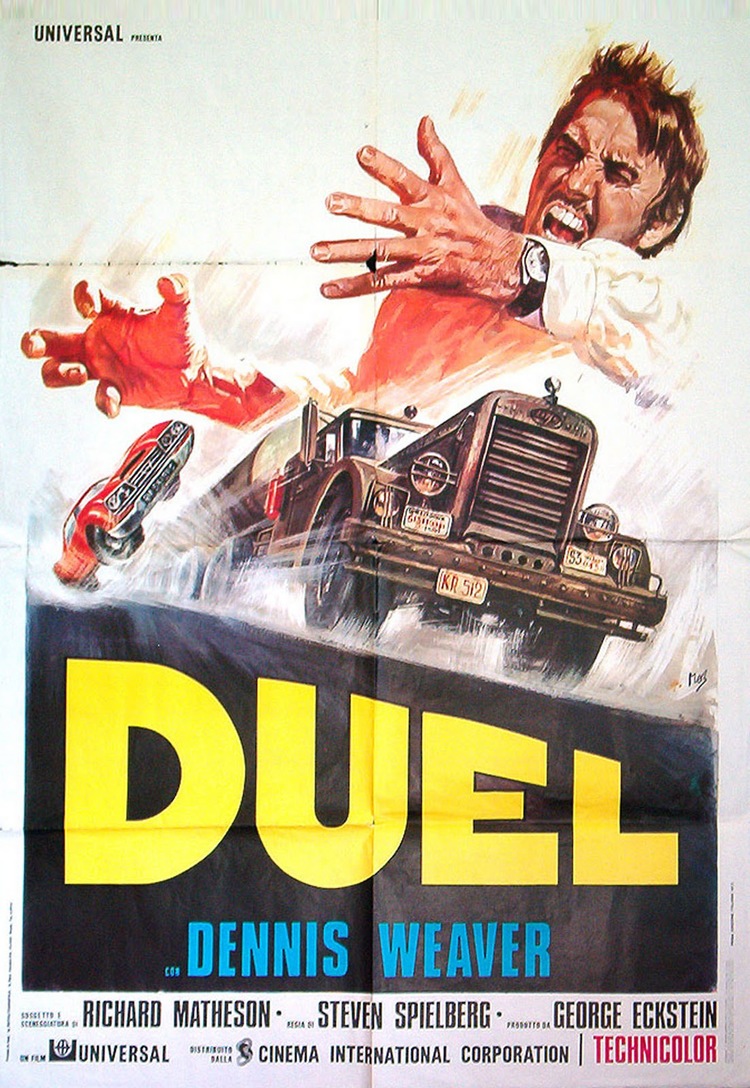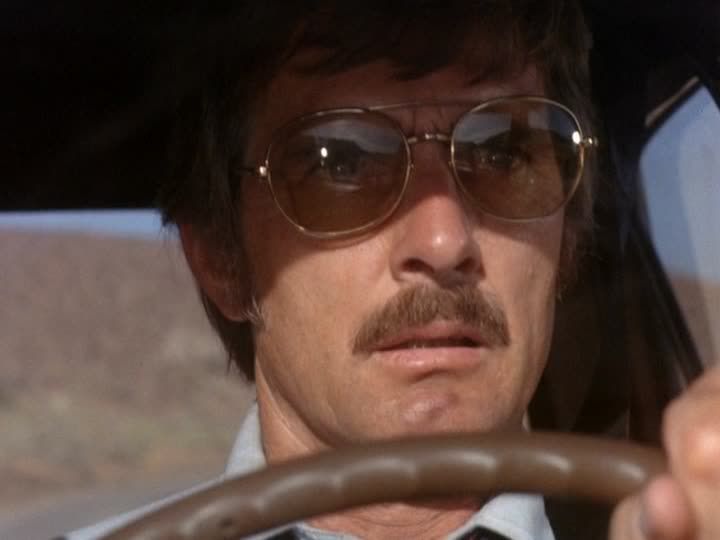 |
| Fig. 1: Duel Poster. |
 |
| Fig. 2: David Mann. |
 |
| Fig. 3: David calls his wife. |
 |
| Fig. 4: Comparison of the two vehicles. |
 |
| Fig. 5: Mann in the diner. |
 |
| Fig. 6: A happy ending? |
An intense ride from start to finish, combined with beautiful scenery and a vehicle that steals the show instead of the main character, Duel is arguably one of Spielberg's best films, and one he even manages to make a small, unintentional cameo in, when he is seen in the reflection of a phone booth. It is one of a great many films that show a detailed plot and plenty of character development are not entirely necessary; "Duel might almost have been a silent film, because it expresses so much through action and so little through the words that are here." (Maslin, 1983). The setting, action and characters are already developed, the audience is simply witnessing the most thrilling part of their story.
Images:
Figure 1. Duel Poster. (1971) [poster] At: http://geektyrant.com/news/10-fun-facts-about-steven-spielbergs-duel (Accessed on: 06.02.2016)
Figure 2. David Mann. (1971) From: Duel. Directed by: Steven Spielberg [Film still] United States: Universal Studios. At: http://seul-le-cinema.blogspot.co.uk/2011/02/duel.html (Accessed on: 06.02.2016)
Figure 3. David calls his wife. (1971) From: Duel. Directed by: Steven Spielberg [Film still] United States: Universal Studios. At: http://zombievamp.blogspot.co.uk/2012/02/126-duel-steven-spielberg-1971.html (Accessed on: 06.02.2016)
Figure 4. Comparison of the two vehicles. (1971) From: Duel. Directed by: Steven Spielberg [Film still] United States: Universal Studios. At: http://zombievamp.blogspot.co.uk/2012/02/126-duel-steven-spielberg-1971.html (Accessed on: 06.02.2016)
Figure 5. Mann in the diner. (1971) From: Duel. Directed by: Steven Spielberg [Film still] United States: Universal Studios. At: http://zombievamp.blogspot.co.uk/2012/02/126-duel-steven-spielberg-1971.html (Accessed on: 06.02.2016)
Figure 6. A happy ending? (1971) From: Duel. Directed by: Steven Spielberg [Film still] United States: Universal Studios. At: http://zombievamp.blogspot.co.uk/2012/02/126-duel-steven-spielberg-1971.html (Accessed on: 06.02.2016)
Bibliography:
Freer, I (2000) 'EMPIRE ESSAY: Duel Review' In: Empire Online 01. 01. 2000 [online] At: http://www.empireonline.com/movies/empire-essay-duel/review/ (Accessed on: 06.02.2016)
Maslin, J (1983) ''SPIELBERG'S 'DUEL,' FOUR-WHEEL COMBAT' In: The New York Times 15. 04. 1983 [online] At: http://www.nytimes.com/movie/review?res=9804EFD81138F936A25757C0A965948260 (Accessed on: 06.02.2016)

Once again, a thorough and insightful review... great stuff :)
ReplyDelete